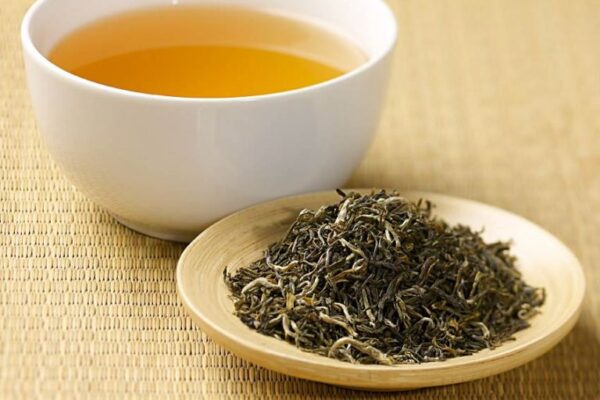Green tea is so good for you that it’s even got some researchers raving.
“It’s the healthiest thing I can think of to drink,” says Christopher Ochner, PhD. He’s a research scientist in nutrition at the Icahn School of Medicine at Mount Sinai Hospital.
Of course, no one food will protect you from disease. Your health is wrapped up in your lifestyle and your genes, so even if you drink green tea all day long, you also need to take care of yourself in other ways ie not smoking, being active and eating a healthy diet.
Green tea’s biggest benefit?
It is rich in Catechins which are antioxidents that fight and may even prevent cell damage.
What the Research Shows
Green tea has been shown to improve blood flow and lower cholesterol A 2013 review of many studies found green tea helped prevent a range of heart related issues, from high blood pressure to congestive heart failure.
What is good for the heart is usually good for the brain and your brain needs healthy blood vessels also.
In one Swiss study, MRIs revealed that people who drank green tea had greater activity in the working-memory area of their brains.
Green tea has also been shown to help block the formation of plaques that are linked to Alzeimers disease.
Green tea seems to help keep blood sugar stable in people with diabetes.
Potential benefits of Green tea
- Weight Loss- Green tea increases the metabolism. The polyphenol found in green tea works to intensify levels of fat oxidation and the rate at which your body turns food into calories.
- Diabetes- Green tea apparently helps regulate glucose levels slowing the rise of blood sugar after eating. This can prevent high insulin spikes and resulting fat storage.
- Heart Disease- Scientists think green tea works on the lining of blood vessels keeping them supple and better able to withstand changes in blood pressure. It may also protect against the formation of clots which are one of the causes of heart attacks.
- Oesophageal Cancer- It can reduce the risk of oesophageal cancer, but it is also widely thought to kill cancer cells in general without damaging the healthy tissue around them.
- Cholesterol- Green tea reduces bad cholesterol in the blood and improves the ratio of good cholesterol to bad cholesterol.
- Alzheimer’s and Parkinson’s- It is said to delay the deterioration caused by Alzheimer’s and Parkinson’s. Studies carried out on mice showed that green tea protected brain cells from dying and restored damaged brain cells.
- Tooth Decay- Studies suggests that the chemical antioxidant “catechin” in tea can destroy bacteria and viruses that cause throat infections, teeth decay and other dental conditions
- Blood Pressure- Regular consumption of green tea is thought to reduce the risk of high blood pressure.
- Depression- Theanine is an amino acid naturally found in tea leaves. It is this substance that is thought to provide a relaxing and tranquilizing effect and be a great benefit to tea drinkers.
- Anti-viral and Anti-bacterial- Tea catechins are strong antibacterial and antiviral agents which make them effective for treating everything from influenza to cancer. In some studies green tea has been shown to inhibit the spread of many diseases.
- Skincare- Green tea can apparently also help with wrinkles and the signs of ageing. This is because of their antioxidant and anti-inflammatory activities. Both animal and human studies have demonstrated that green tea applied topically can reduce sun damage.
Sources-
Lifehack.org
webmd.com

